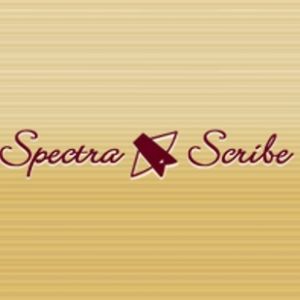Legal Transcriptionist Services: What is Legal Transcription?
Posted by SpectraScribe on December 21st, 2021
Transcription services are most in demand in the legal sector given the wide scale applications of recorded accounts used as written documentation in cases. Since the digitization of transcription services, it is even more viable in today’s time.
Now the question is what exactly is legal transcription services, its need and benefits in today’s legal matters.
What is Legal Transcription?
The procedure of preparing a written format of legal drafts and/or documents referring to a video footage, audio recording and or live speakers is called legal transcription. A legal transcriptionist, after listening to audio or video records, typesdown the words spoken in a suitable legal document.
How is it different from Dictation Writing?
- The term ‘dictation’ is often mistaken as ‘transcription’. As both includes writing while listening. However, it is different.
- ‘Dictation’is a process where a person notes down every word one is saying. Later the written version can be reviewed by simply reading and adding the necessary changes.
- One can also use a Dictaphone and record his thought or message.
- Transcription is a process of creating written documents, converting words spoken in a recording.
- Transcriptionists listen to recorded dictations and transcribe them into a written format manually in order to ensure maximum quality.
- Legal transcription is a particular kind of transcription only used to produce legal documents.
Uses of Legal Transcription
Courtroom proceedings, transcribed by stenographers or licensed court reporters are the most common example of legal transcription. Other types include:
- Deposition
- Interrogations
- Legal briefs
- Wiretaps
- Conference calls
- Jury instruction
Legal transcriptions help to maintain records of court orders & verdicts or any other legal proceedings. Attorneys and legal professionals utilize legal transcriptions in many ways:
- To develop trial plans.
- To prepare questionnaires for a trial.
- To create plans for appeal.
- To have a written record of transcription to use as future evidence.
- To understand the judge’s or a jury’s assessment.
- Legal transcriptions of past cases are studied and discussed in law schools to prepare lawyers of tomorrow.
Benefits of Legal Transcription
Benefits of using legal transcriptions are fundamental to the functioning of any court room, attorney’s office or other legal institutions.
- Appeals: Parties involved in a case are not always satisfied with the court’s decision. An appeal allows the chance to knock the doors of a higher court. Having records and legal transcriptions of the previous trial helps in research and planning strategy for an appeal.
- Format for Law Students: It is not possible to involve every law students in a real-trial. Studying legal transcriptions help them to observe and understand an original case, and learn more efficiently.
- Precision & Clarity: Legal transcriptions supplies accurate findings of any session, depositions or legal proceedings.
Conclusion
Legal transcriptions help professionals stay organized and allows them easy & quick access to documents or records.


